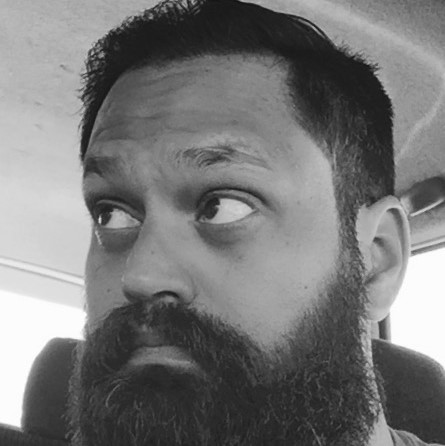This is the second post of a series called, “Reflecting on Advance 2017.” You can read the first one, That Time They Served Indian Food and the third one, That Time We Sang in Hindi.
Probably more than any immediate psychological benefit of the Gospel – the relief of personal guilt, the assurance of eternal rest and the like – the one distinguishing feature of early Christian faith was its curious trans-cultural power. It was curious – and maybe even a bit suspicious – because then, as now, the only social force strong enough to blur tribal boundaries into some common identity was the power of empire. And of course, the way such unity was always achieved was not so much with a rally, a dream or an inspirational montage as with an army. Imperial power is the only social force human beings have ever known to bring cooperation on any grand scale. But this union, whether culled through the straightforward militarism of the Pax Romana or through the more sophisticated apparatus of American consumption and self-interest, has always been a fragile one because it has always been based on larger divisions between rival empires. And (to invoke a phrase of one my favorite authors) so it goes. History is the undulation of failed empires replacing one another in a bloody competition for their tenuous unities.
AN INDIAN IN IDAHO
This is the drama inside which each of us live our lives, and it is the one in which I lived mine. I was born to Hindu immigrants in the unlikely surroundings of rural Idaho. Is there really any other kind of Idaho? Ellis Island this is not. There were reasons for this destination, which childhood ignorance veiled; but what was not hidden from me was the abiding sense of alienation which attended every waking moment of our existence there. There were a few episodes of outright racism, but life was not a dramatic daily reenactment of Mississippi Burning. This shouldn’t surprise anyone; belonging is rarely a matter of explicit invitation and rejection; it has much more to do with the implicit cues and markers of cultural identity and our ability to navigate those. We were, at that time, the only brown people in our immediate community and the only cultural difference most of our neighbors had ever experienced. Still acclimating to an utterly foreign environment themselves, my parents were only slightly less lost at sea than we were. As in most immigrant families (particularly those without the buffer of an ethnically familiar community), the roles quickly reversed from seeking parental guidance to providing them with the cultural savvy they lacked, gleaned from my own struggle to fit in.
The existential isolation of that struggle is profound. In straddling two worlds, equally foreign for different reasons, I was left floating in the black cultural void of uncharted space between them. Every conscious act of assimilation was a reminder that this is not who I really was. Rather than having my life grow from an emerging sense of myself, my identity remained an elusive aspiration to which I must strive. Children of immigrants have to be Christopher Columbus in the quest for belonging, charting new territory. And I was like him in one particularly strange respect – I didn’t really know what it meant to be Indian.
AN INDIAN IN THE KINGDOM OF GOD
This isn’t to say that my cultural heritage didn’t shape me – it has done so in innumerable ways. But my movement away from it in my self-conscious immersion in American culture started as early as formal education, making it feel at once strange and familiar. There was eventually a small Indian community which developed in our area – and coming into it was exactly as emotionally taxing as entering public school. These did not feel like my people either, and the person I was becoming felt as foreign among them as the environment at school reminded me I was in that surrounding. But I think this was harder for me. At school I had to overcome the way I looked by the way I behaved and even the way I arranged my interior life – it was a struggle to overcome the obvious visual difference in order to be accepted and acceptable. I had to prove that I wasn’t a foreigner. In this setting I had to prove something far more difficult – I had to prove that I wasn’t an imposter. I looked like them and felt like I should be like them but there was nothing about me that seemed to resonate with them – my intuitions, values, desires, goals and cultural sensibilities couldn’t have been more disappointingly different. Of course, that disappointment was marked by the fact that I am, in fact, Indian. The challenge facing me at school was in some ways external – about managing their expectations. And the striving was, by some twisted logic, reasonable – I wasn’t naturally one of them, after all. Therefore, the pain of disconnection in an Indian setting was far more acute – if I don’t naturally fit in here, where else do I have to go? For, this reason the joke between my twin brother had always been, “Being around all these Indians is so uncomfortable!” It’s a joke precisely because the obvious reaction to that is, “Wait – but aren’t YOU Indian?!” What has remained singularly unfunny to me about it was the haunting reality that even in the one place one would think I might fit, I clearly don’t.
It’s this feeling of dispossession, of living on the seams between communities, this hunger for some social reality to provide genuine belonging, to which the good news of Jesus Christ addresses itself. My encounter with Christianity in my college years was an experience of a kingdom not reinforced by national, tribal, cultural, ethnic identity, but by the love of God. The unity it provided wasn’t based upon a larger competition with other tribal loyalties, but with a larger solidarity with the sin and suffering of all human beings. In the kingdom of God, all other grounds of our identity aren’t obliterated – such a thing isn’t possible. Any social arrangement which says that there’s no difference between people is always a mask for cultural oppression. But in Christ all of these differences are relativized; they are turned from instruments of war into the offerings of peace – the gifts we bear to brothers and sisters united on other grounds. That ground is Golgotha – the site of God’s own alienation, the pain of his rejection and the offering of his love in the face of our deepest fears and prejudices.
AN INDIAN AT ADVANCE
When I was invited to come to the Advance Initiative conference in 2017 it was in the context of a flowering friendship between myself and another Indian leader I was surprised to have encountered upon my move to Portland (by all accounts the most culturally homogenous city of its size in the country). What was kindling in my friendship with Josh – the similar tensions of our upbringing, the major differences in our religious formation and some common questions about what it meant to be both Indian and Christian – erupted into an explosive wildfire through my exposure to the diverse and intriguing stories of Indians in pursuit of this Kingdom. The healing I experienced in the offering of those stories is still mysterious to me – I am still unpacking it. However, the experience of reconciliation between these warring identities inside me – my own inner reflection of history’s brutal reality – was like a gentle tug on the eternal simplicity of divine love which lies underneath all the complexity of the world. It’s no small thing to hear one’s name pronounced correctly by people other than his parents for the first time in over 40 years. I’m still uncomfortable around all these Indians, but this time, whatever it is being pulled inside of me isn’t cinching the knot. It’s beginning to unravel those tensions, like it did for Jews and Greeks in those first centuries where Christ’s new world was dawning inside the empires of old, bursting them from the inside. Could that be what was happening inside of me at Advance? I’m curious. And I’ll probably be back this year to find out.




